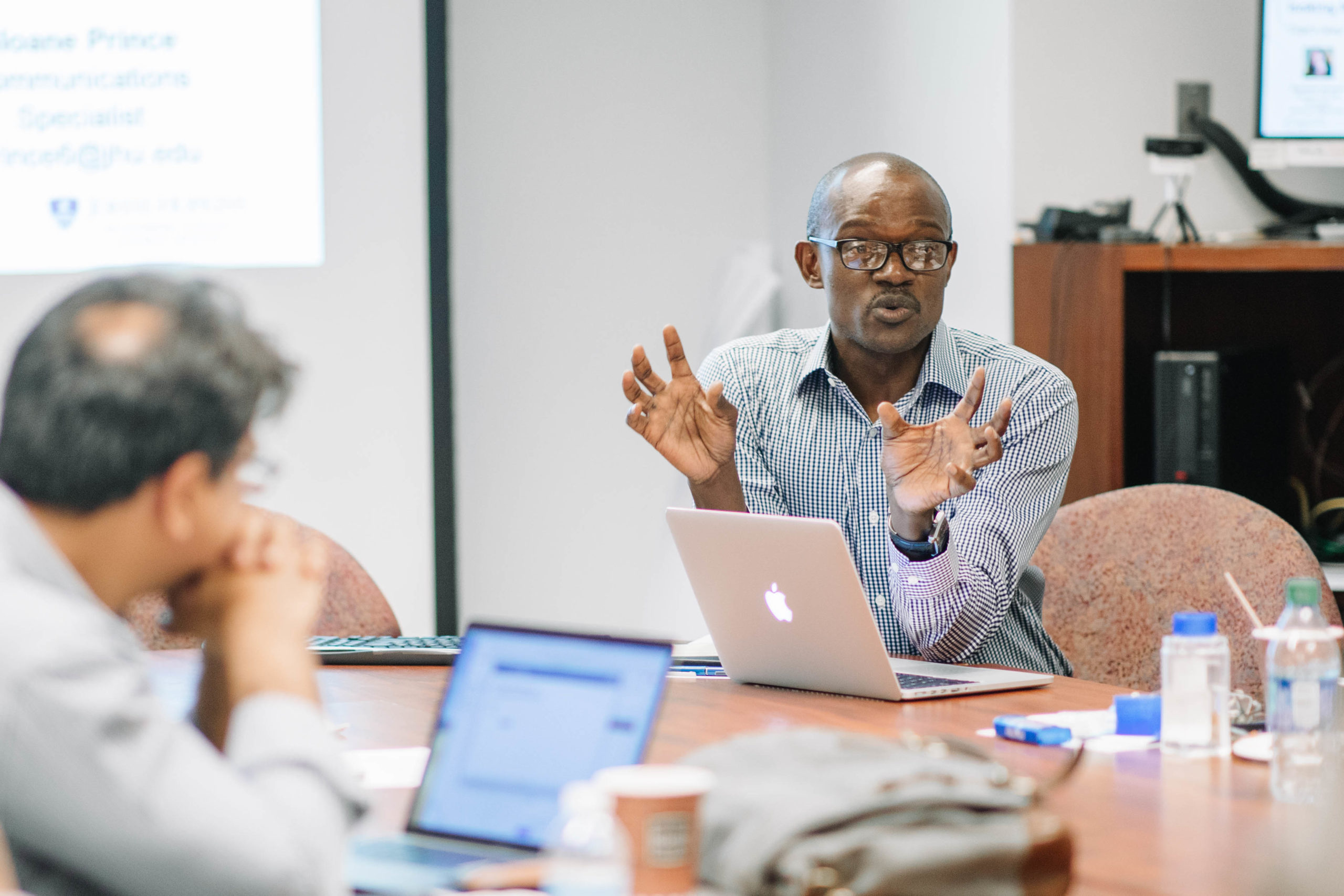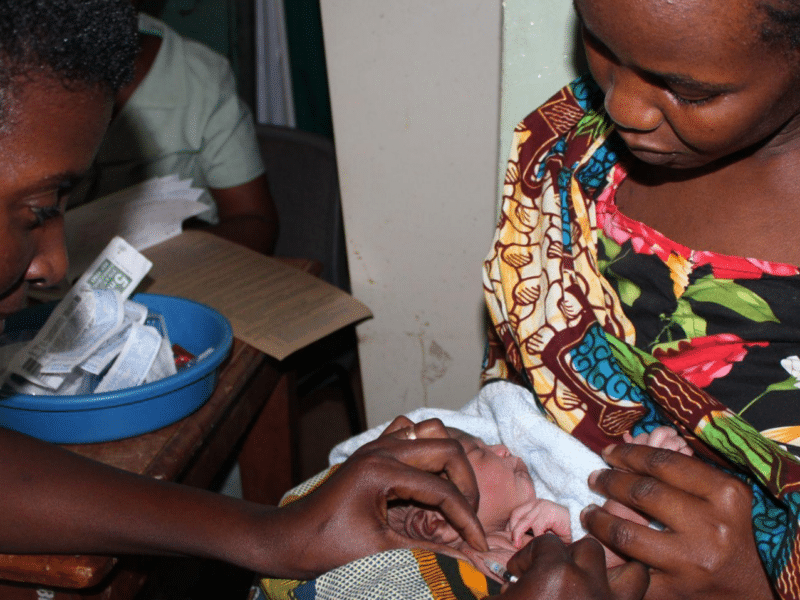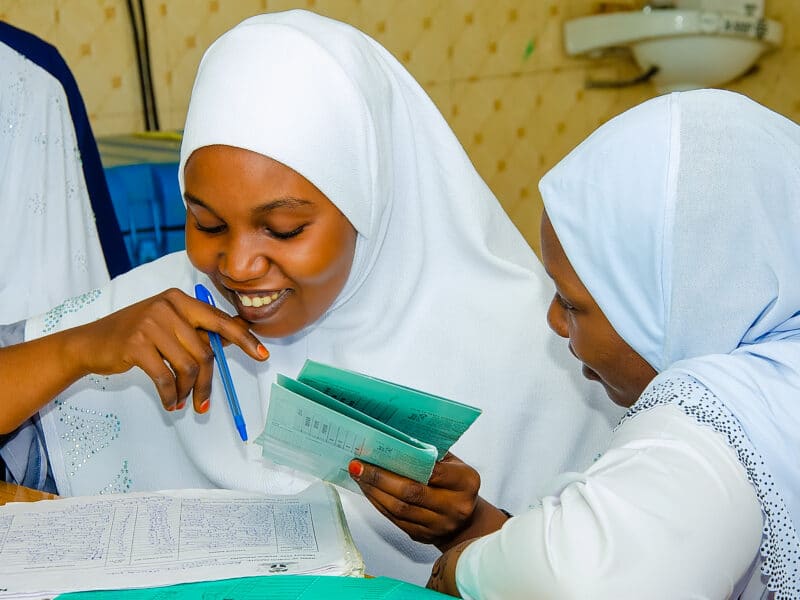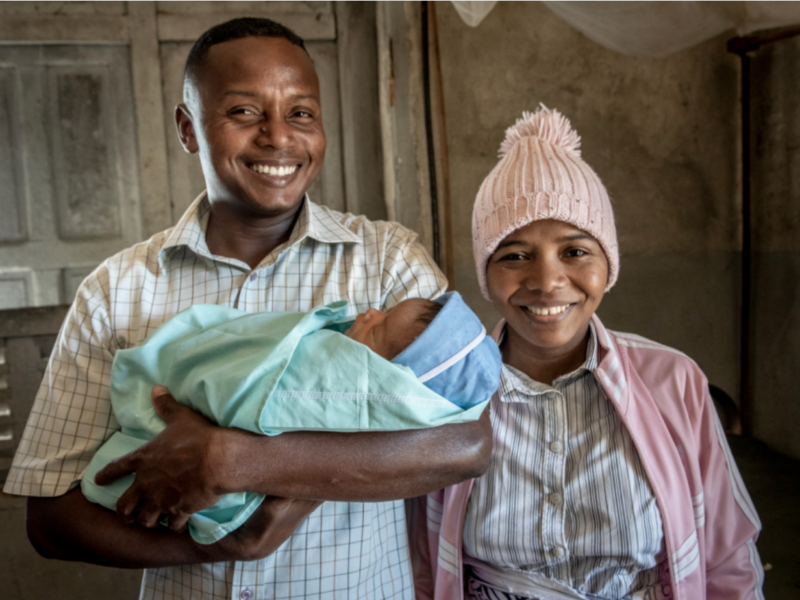It is early January and Fred Rariewa has just read aloud the list of invitees for a meeting later in the month promoting private and public partnerships in Kenya. The usual suspects from the Western donor community and Ministry of Health will be there. But so will names like Unilever, the Wrigley Company and the American Chamber of Commerce. Rariewa believes that the future of health and development work rests with the private sector.
Rariewa, who began working at the Johns Hopkins Center for Communication Programs in 2017, comes from a unique place in the development world: His training is in business, while most of CCP’s staff comes from public health and health communication. Over the last 14 months, Rariewa, a Nairobi native, has led CCP’s efforts to connect one of the biggest multinational companies in the world, Unilever, with some of the same kinds of small local businesses he grew up with.
“Mr. Wanjohi ran our neighborhood store when I was a kid,” Rariewa says. “If my parents had to work late, they would give him the house key for me to pick up after school.” These small stores thrived in Nairobi in the 1960s, as Rariewa’s father, a chief accountant at the Central Bank of Kenya, and his mother, the owner of a tailoring business, raised their six children.
Today, there are more than one million of these micro-retailers, known as dukas, who have a loyal customer base and personal relationships with the communities they serve. Rariewa believes that in Kenya, which has a shortage of roughly 8,000 community health workers and 4.5 million people living in poverty, small business owners can become health promoters, providing basic health information and doing their part to keep citizens healthy.
At the same time, businesses like Unilever are building their brands in new markets and want access to consumers in a burgeoning middle class. In Kenya and across much of Africa, multinational corporations know that public trust and collaboration — something dukas have — is vital to a long and productive presence. The rapidly growing youth demographic in these emerging markets means a wealth of potential customers. To earn their business, many are demanding that corporations pay attention to social concerns like the environment, government accountability, and health and wellbeing.
“Think about it,” Rariewa says, “these shop owners see around 100 people a day, while a health worker may only see five or 10. And, they are already selling health products from companies like Unilever, and Johnson & Johnson.”
To achieve the U.N.’s Sustainable Development Goals, the African Union says the continent’s health systems need two million more community health workers. Instead of continuing traditional public health approaches, Rariewa offers the dukas.
“People are climbing the wrong ladder. We can achieve a lot, quickly, through the existing connections that dukas have,” Rariewa says. “Pairing this with digital tools, they can influence social and behavior change at scale.” Dukas can provide basic information about hygiene, sanitation and nutrition while also selling soap, oral rehydration salts and chlorine, Rariewa says.
Rariewa’s own journey started after undergraduate studies in marketing and business management at Nairobi University. Rariewa then joined Group Africa, a local advertising agency specializing in experiential marketing.
In 2000, Rariewa moved to Uganda to work closely with CCP’s East Africa representative, Cheryl Lettenmaier. Together they planned and implemented roving entertainment shows to promote condom use among youth. They rode trucks carrying microphones, speakers and a stage to deliver music, drama and family planning counseling. These were the days when even radio was absent from rural areas and basic health information was hard to come by.
Lettenmaier recognizes that this work inspired a higher sense of purpose in Rariewa. “He saw the value of applying marketing principles beyond commercial products and promotion of brands,” she says. “It influenced the direction he took with the creation of his own business, Pulse.” He started Pulse, a consumer marketing agency, in 2004.
Over the course of 13 years, Pulse expanded to five East African countries with more than 200 staff, with revenues of more than $5 million a year from traditional clients like Uganda Breweries, a leading telecom and Coca-Cola. But it was work promoting diapers to nurses for Procter & Gamble that drove Rariewa’s thinking about health and development.
He moved to Washington, DC, in 2007 and enrolled in the MBA program at Georgetown University. He continued to manage Pulse remotely, plowing learnings from Georgetown into Pulse as fast as he could. With his new skills, revenues soared, but so too did power struggles. Under the weight of competing visions, Pulse collapsed in 2017. Rariewa admits he was crushed.
“This was a very painful journey, but it has given me perspective,” he says. “Before, it was all about me. Now I ask myself, ‘how can I serve?’”
For a recent CCP-led presentation in Nairobi, Rariewa brought together panelists from India, Nigeria, Philippines, Kenya and Tanzania to talk about the lessons learned from working with the private sector.
CCP’s Deputy Director, William Glass, guided the discussion through a framework Rariewa put together from the research CCP conducted with the dukas on behalf of Unilever and DFID, the UK’s international development arm. The Mapping, Positioning, and Gearing framework Rariewa created lays out the vital steps that must be taken to achieve scale and sustainability in digital behavior change interventions.
Afterwards, Glass praised the new perspective that Rariewa brings to the work.
“Fred is an ideas guy,” he says. “He has a creative and generous mind, he is also a born salesman, he puts himself out there. That’s not something public health people do naturally.”
Rariewa says that the international development landscape is shifting.
“I expect that, by 2025, private sector funding for our health work will overtake public funding,” he says “The typical government donors from high-income countries and their partner governments in low- and middle-income countries will no longer be the most efficient paradigm. In today’s world, innovation happens in the private sector.”
If the private sector is to grow into the role Rariewa predicts, it will have to overcome doubts from traditional public health and development practitioners about the private sector’s motives.
“We need to broaden our perspective and stimulate our imagination,” he says. “We at CCP and those in the health and development sector have spent many decades responding to public health needs. Let us bring the innovation and flexibility of the private sector to our work with communities, governments and international donors. Together we can deliver health solutions.”





